Ritchie Pickett
In an article about the school production of Gilbert and Sullivan’s The Gondoliers, the Morrinsville College magazine of 1971 described Ritchie Pickett as “in many ways the most entertaining figure on the stage”.
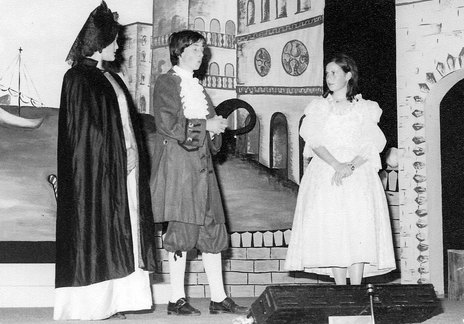
Ritchie Pickett (centre), “in many ways the most entertaining figure on the stage”, as the Duke of Plaza Toro in Morrinsville College’s production of The Gondoliers, 1971.
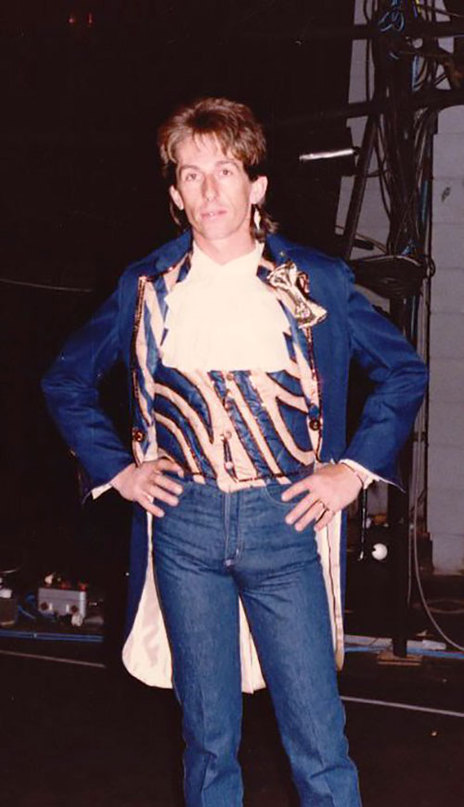
Ritchie Pickett all dressed up for That’s Country in the early 1980s
Photo credit:
Gary Sammons collection
Ritchie Pickett - I Wonder Where You Are Tonight
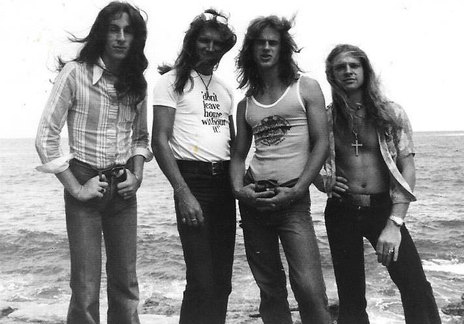
Snuff in Sydney in the late 1970s. Ritchie Pickett extreme left
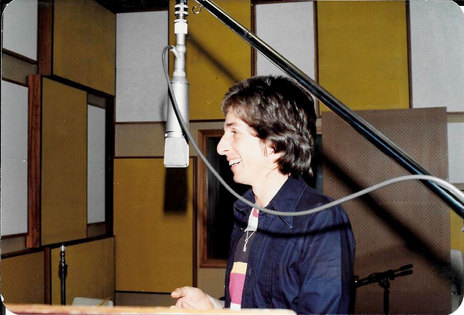
Ritchie Pickett recording vocals at Radio BOP, 1981
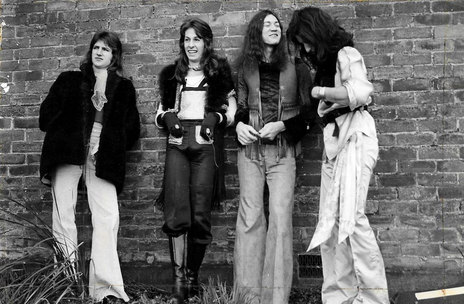
Graffiti Mk.2 in the mid-1970s. Left to right, Gary Williams, Ritchie Pickett, John Parker, Jon Drinkwater.
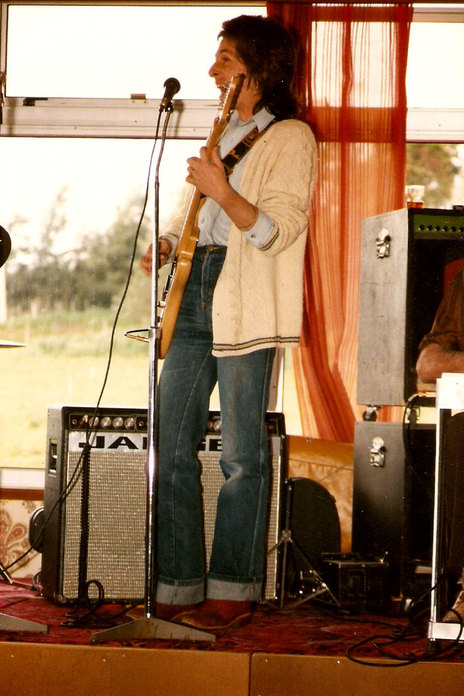
Ritchie Pickett at the Tauranga Star Awards, 1981
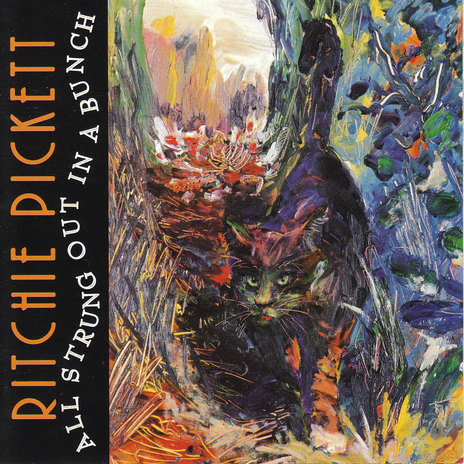
All Strung Out In A Bunch, released 1998
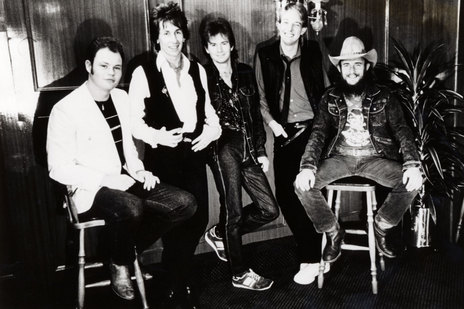
An RCA Records publicity shot for Ritchie Pickett & The Inlaws, 1984. Left to right, Jimmy Wallace, Ritchie Pickett, Noel Lamberton, Kevin Coleman, Dave Maybee.
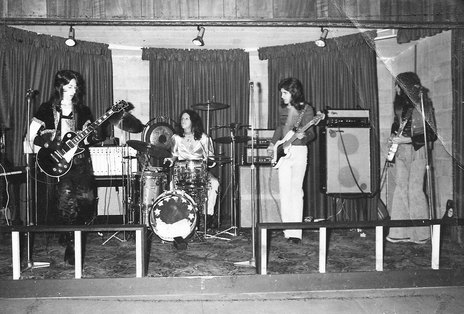
Graffiti Mk.2 in the mid-1970s. Left to right, Ritchie Pickett, Jon Drinkwater, Gary Williams, John Parker.
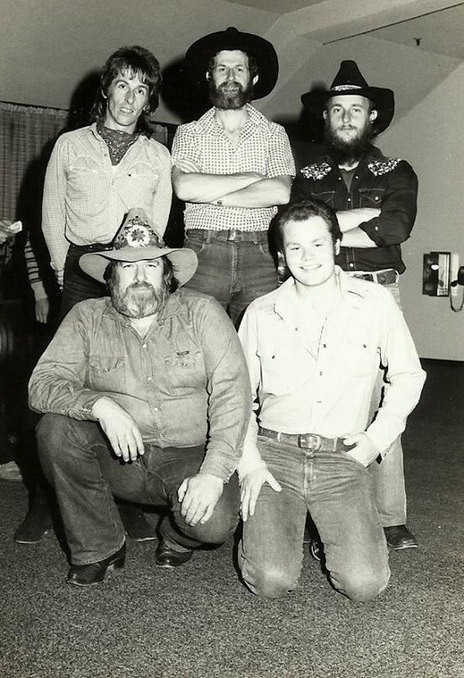
Double Anything, early 1980s. Clockwise from top left, Ritchie Pickett, Bruce Morley, Dave Maybee, Jimmy Wallace, Errol Shute.
Photo credit:
Charmaine Pickett collection
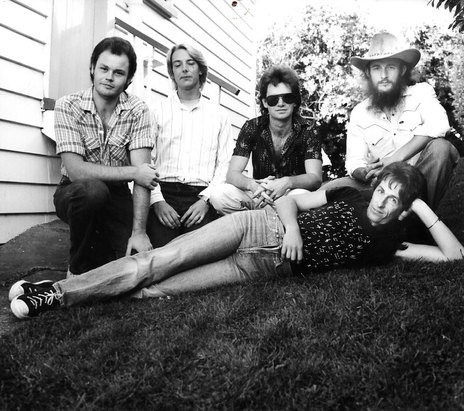
Ritchie Pickett & The Inlaws, 1984. From left: Jimmy Wallace, Kevin Coleman, Noel Lamberton, and Dave Maybee. Ritchie Pickett is in front.

The Rattler’s The Leaving, released 2009
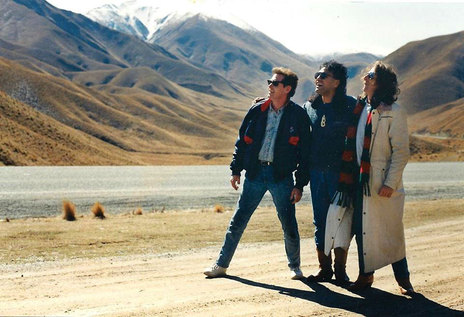
Tom Sharplin (left), Bunny Walters (centre) and Ritchie Pickett at Burkes Pass in the South Island.
Photo credit:
Tom Sharplin collection
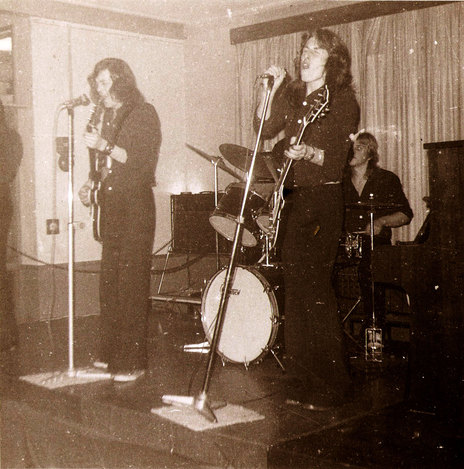
Graffiti, Te Rapa Tavern, Hamilton, 1974. Left to right, Bill Wilson, Ritchie Pickett, Steve Osborne.
Photo credit:
Lynette Morris collection
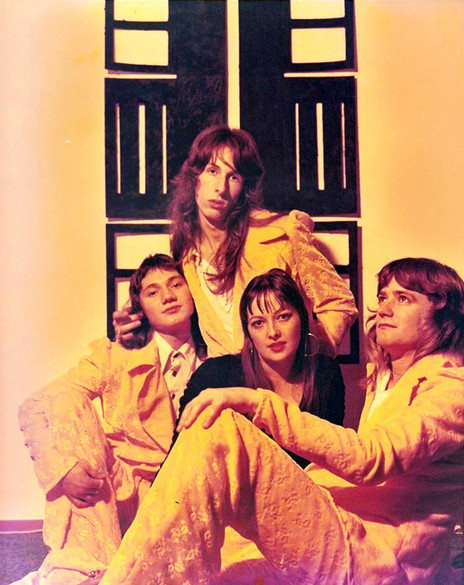
Hot Ash in the mid-1970s. Left to right: Gordon Joll, Ritchie Pickett, Pauline McAuley, Rod McAuley.
Photo credit:
Rod McAuley collection
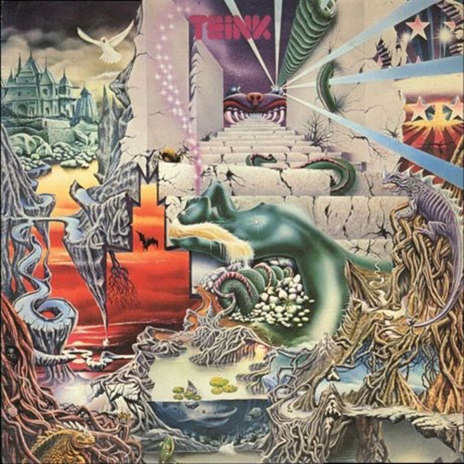
Think's We'll Give You A Buzz, 1976
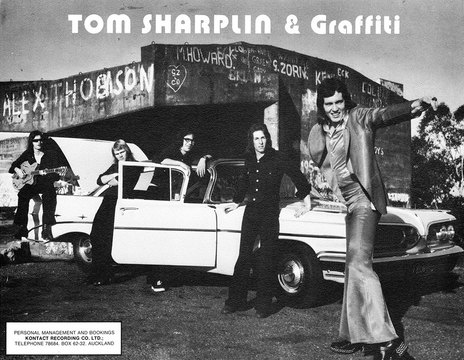
Tom Sharplin & Graffiti, mid-1970s. Left to right, Glenn White, Steve Osborne, Bill Wilson, Ritchie Pickett, Tom Sharplin.
Photo credit:
Tom Sharplin collection
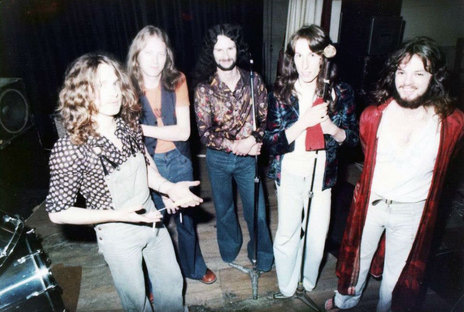
Think, 1976. Left to right, Allan Badger, Phil Whitehead, Don Mills, Ritchie Pickett, Neville Jess.
Photo credit:
Don Mills collection

Ritchie Pickett in the 1980s
Photo credit:
Charmaine Pickett collection
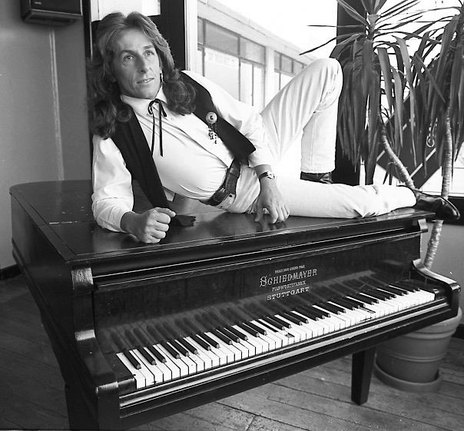
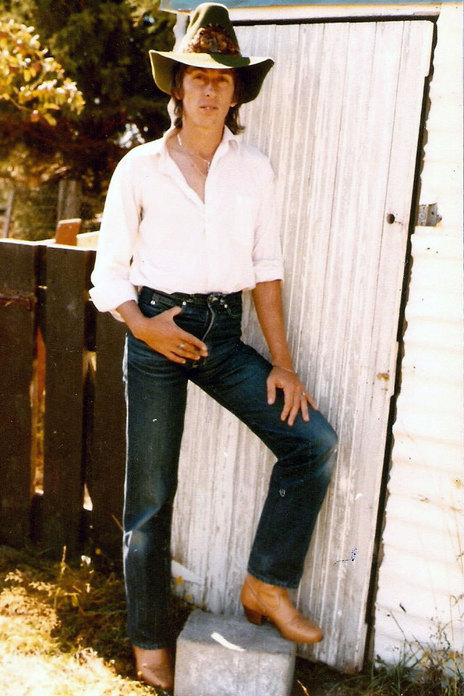
Ritchie Pickett in the early 1980s
Photo credit:
Charmaine Pickett collection
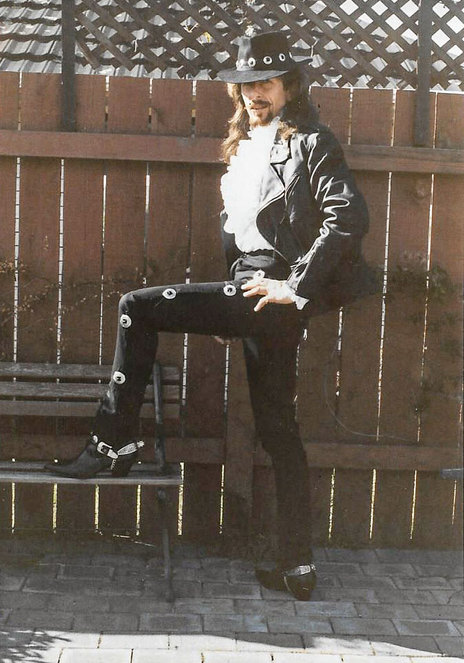
The result of a Ritchie Pickett shopping spree in Carnaby Street, London
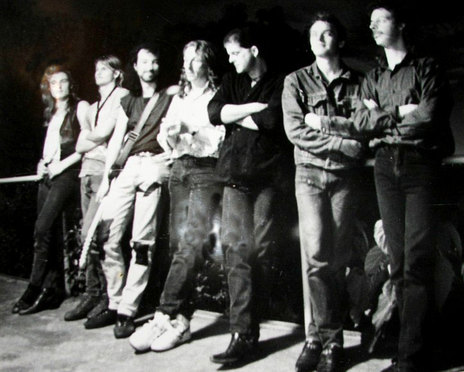
The only known photo of The Disturbance, early 1990s. Left to right, Damien Forlong, Ricky Harris, Derek Jacombs, Ritchie Pickett, John Terry, James Fleming, Grant Winterburn.
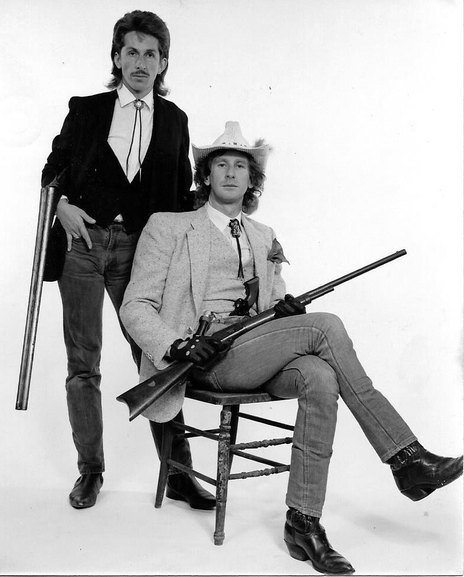
Ritchie Pickett (standing) and Liam Ryan in the late 1980s
Photo credit:
Photo by Jack Pickett
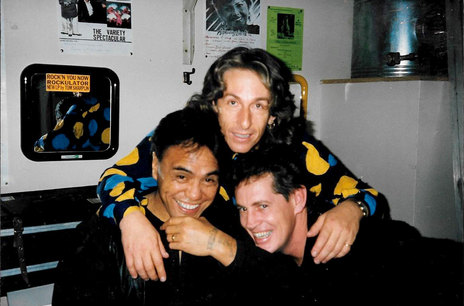
Bunny Walters, Ritchie Pickett and Tom Sharplin
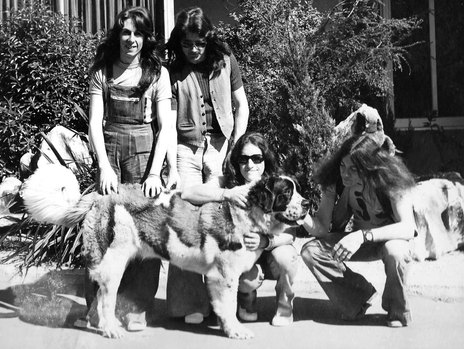
Graffiti Mk.2 in the mid-1970s. Left to right, Ritchie Pickett, Gary Williams, Jon Drinkwater, John Parker.
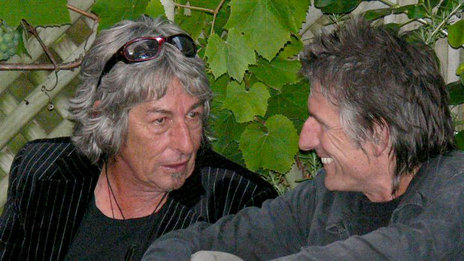
Ritchie Pickett (left) and Dave McArtney share a story at the Mudsharks reunion, Raglan, 2009
Photo credit:
Sue Oliver collection
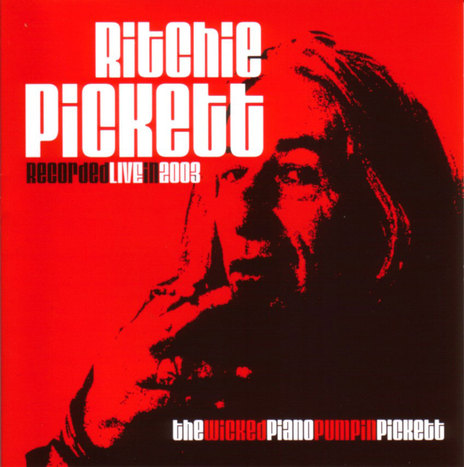
The Wicked Piano Pumpin’ Pickett, released 2004
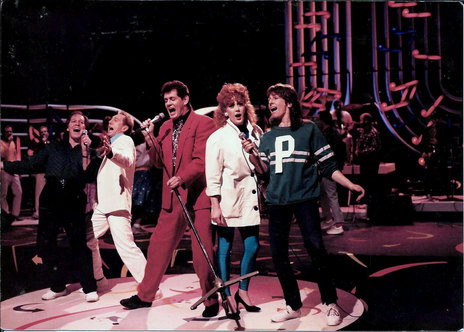
On stage for a TVNZ production in 1985. Left to right, Pat Kearns, Midge Marsden, Tom Sharplin, Maree Humphries, Ritchie Pickett.
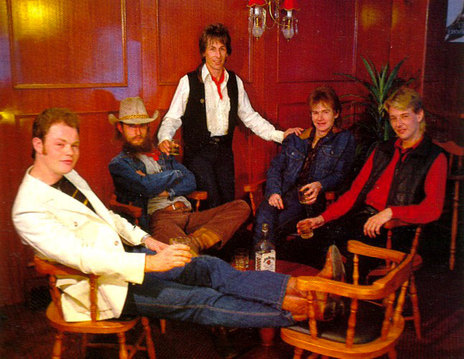
Ritchie Pickett & The Inlaws, 1984. Left to right, Jimmy Wallace, Dave Maybee, Ritchie Pickett, Noel Lamberton, Kevin Coleman.
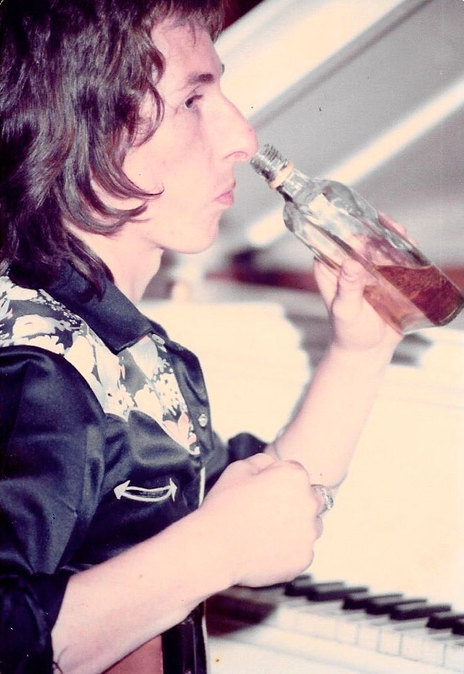
Ritchie Pickett at the NZ Country Music Hall of Fame in Taupo, 1981. One alcohol-charged gig there was said to have inspired the Gone For Water track Last Night I Let The Bottle Get On Top.
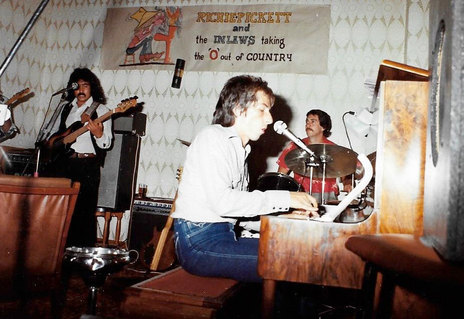
An early incarnation of Ritchie Pickett & The Inlaws
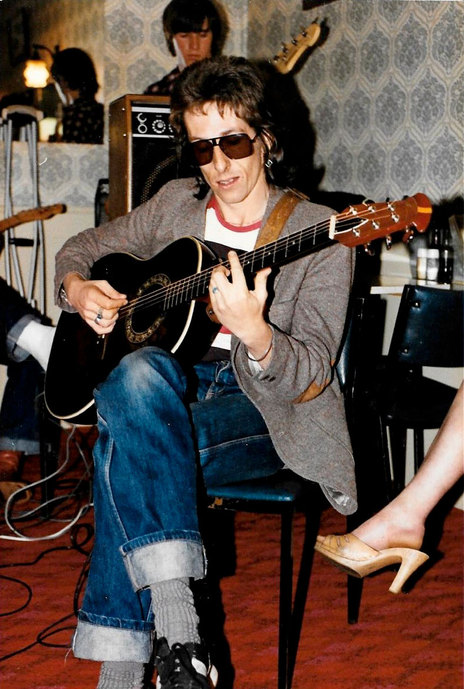
Ritchie Pickett, 1981
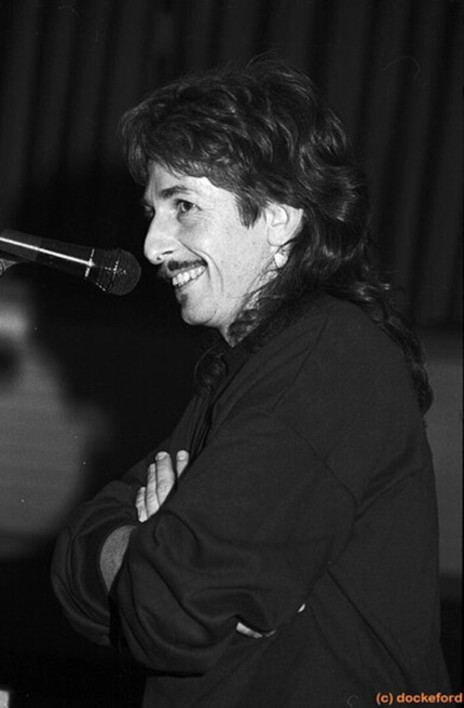
Ritchie Pickett in Hamilton, 1980s.
Photo credit:
Karen Ford
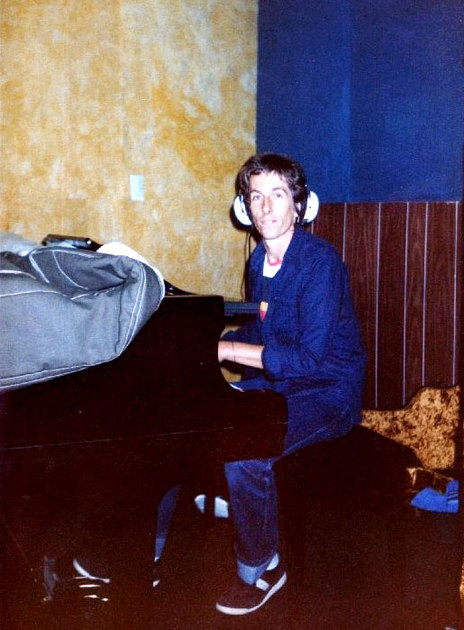
Ritchie Pickett at Mandrill Recording Studios, 1981
Photo credit:
Photo by Pat Mahoney
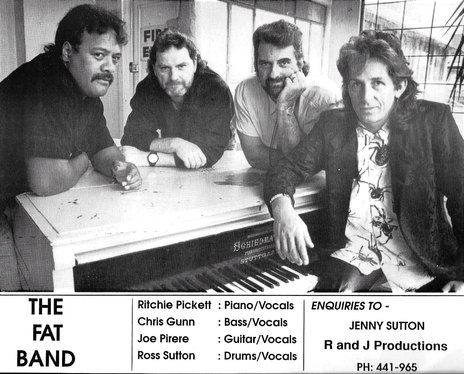
The Jones Boys became The Fat Band in the late 1980s. Left to right, Joe Pirere, Chris Gunn, Ross Sutton, Ritchie Pickett.

Ritchie Pickett on the set of That’s Country, early 1980s
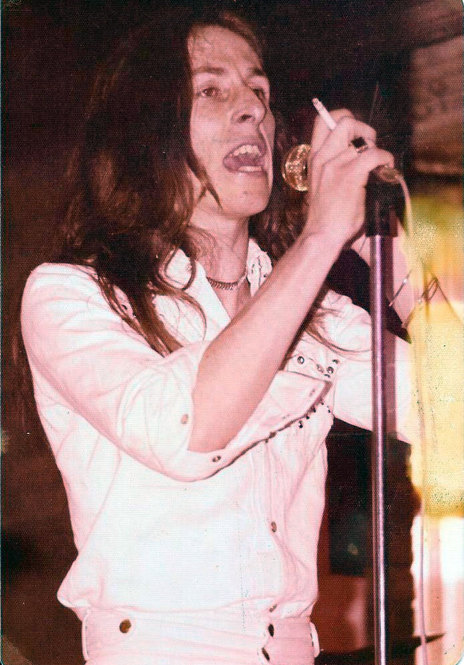
Ritchie Pickett singing with Think
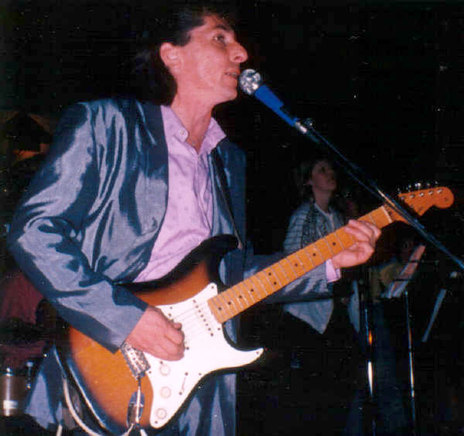
Ritchie Pickett at the Centennial Hall, Napier, 1987
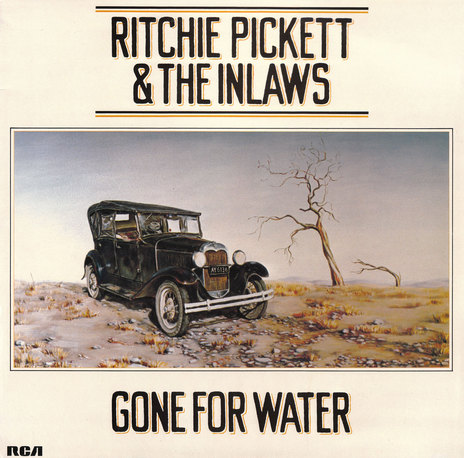
Ritchie Pickett & The Inlaws’ Gone For Water, released 1984
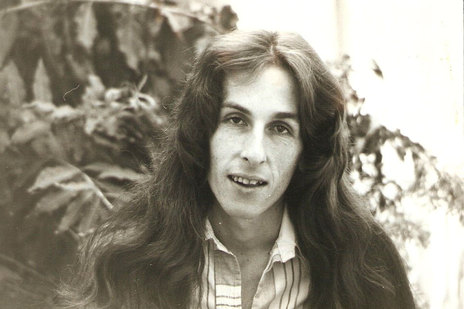
Ritchie Pickett in the 1970s
Photo credit:
Charmaine Pickett collection
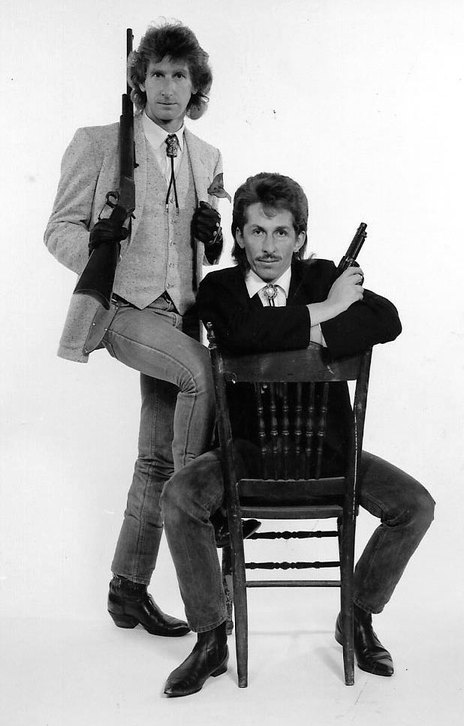
Liam Ryan (standing) and Ritchie Pickett in the late 1980s
Photo credit:
Photo by Jack Pickett
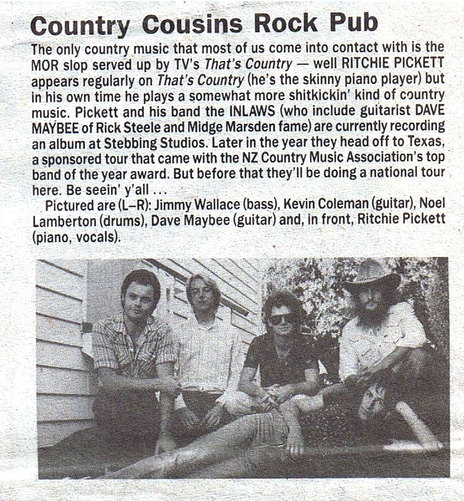
Rip It Up, June 1984
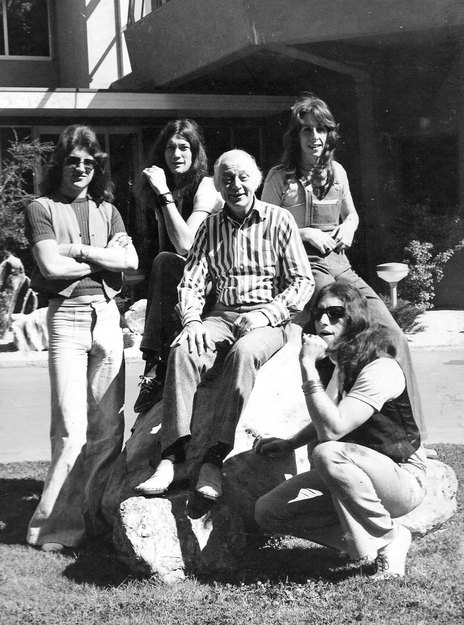
Graffiti Mk.2 with English actor Patrick Cargill, who was best known for the ITV sitcom Father, Dear Father and played a Scotland Yard superintendent opposite The Beatles in Help! Left to right, Gary Williams, John Parker, Cargill, Ritchie Pickett. Jon Drinkwater crouching.
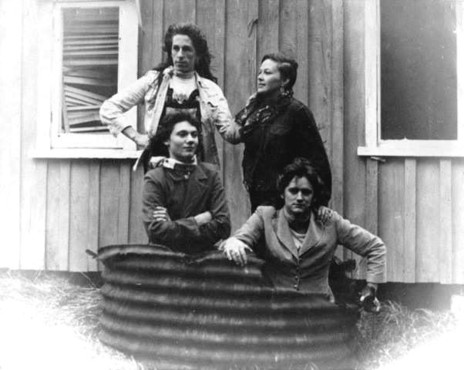
Hot Ash in the mid-1970s. Clockwise from top left, Ritchie Pickett, Pauline McAuley, Rod McAuley, Gordon Joll.
Photo credit:
Rod McAuley collection
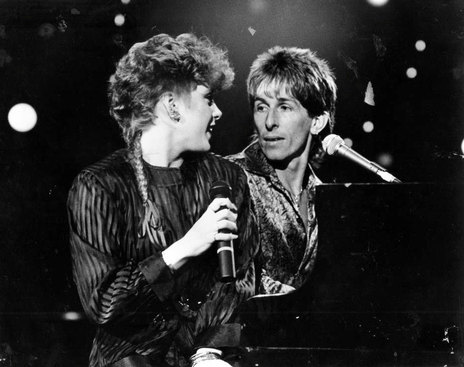
Maree Humphries and Ritchie Pickett duet on That’s Country, early 1980s.
Photo credit:
Maree Humphries collection
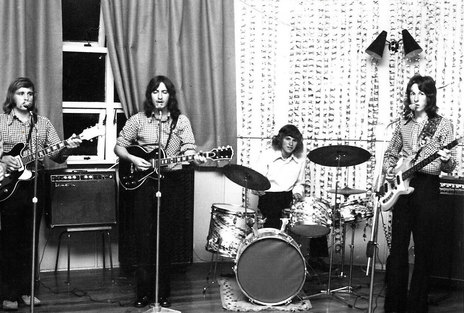
Doogal, 1973. Left to right, Greg Dodunski, Gareth Simmons, Terry Cooper, Ritchie Pickett.
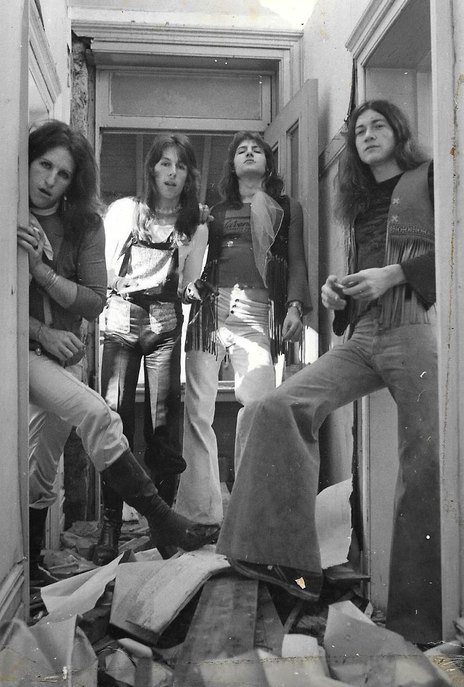
Graffiti Mk.2 in the mid-1970s. Left to right, Jon Drinkwater, Ritchie Pickett, Gary Williams, John Parker.
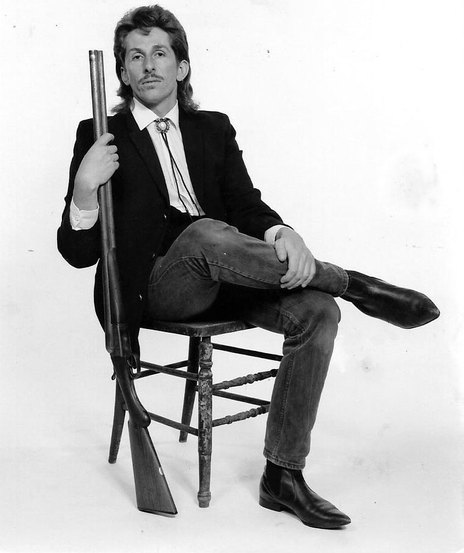
Ritchie Pickett in the late 1980s
Photo credit:
Photo by Jack Pickett
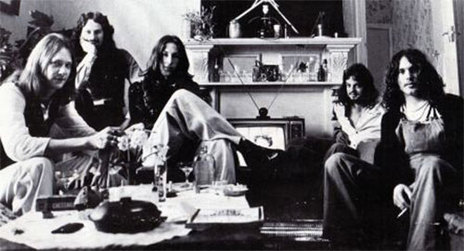
Think, 1976. Left to right, Phil Whitehead, Don Mills, Ritchie Pickett, Neville Jess, Allan Badger
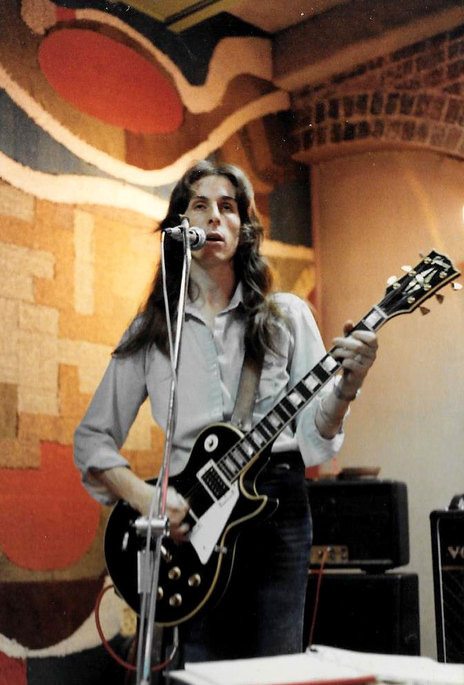
Ritchie Pickett in the 1970s
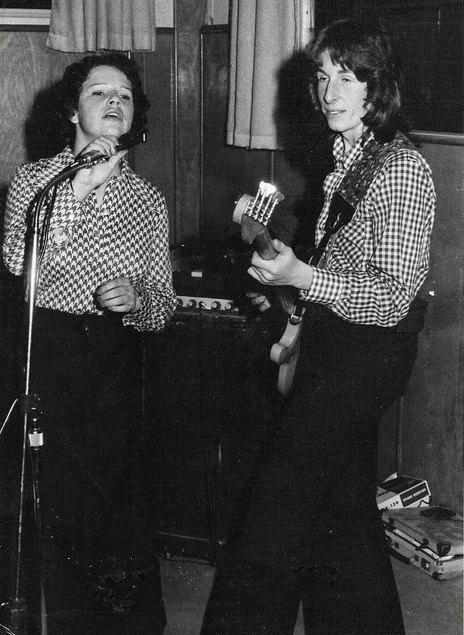
Ritchie Pickett on bass with Morrinsville band Doogal, 1973
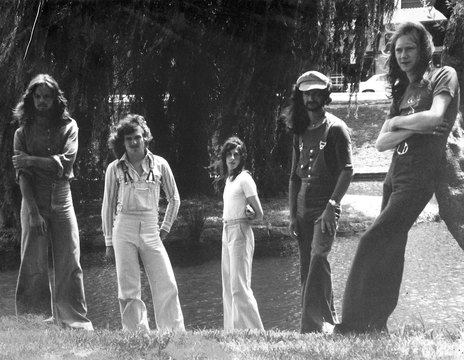
Think. Left to right, Neville Jess, Allan Badger, Ritchie Pickett, Don Mills, Phil Whitehead.
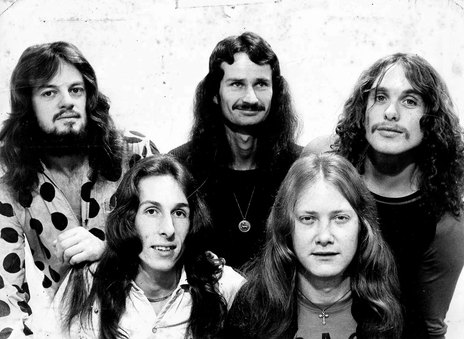
Think. Clockwise from top left, Neville Jess, Don Mills, Allan Badger, Phil Whitehead, Ritchie Pickett.
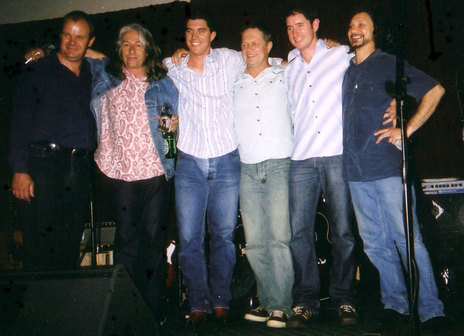
Post the King’s Arms show in 2003 that would yield Ritchie Pickett’s live album The Wicked Piano Pumpin’ Pickett. Left to right, Neil Hannan, Ritchie Pickett, Glen Moffatt, Bill Chambers, Chet O’Connell, Gordon Joll.
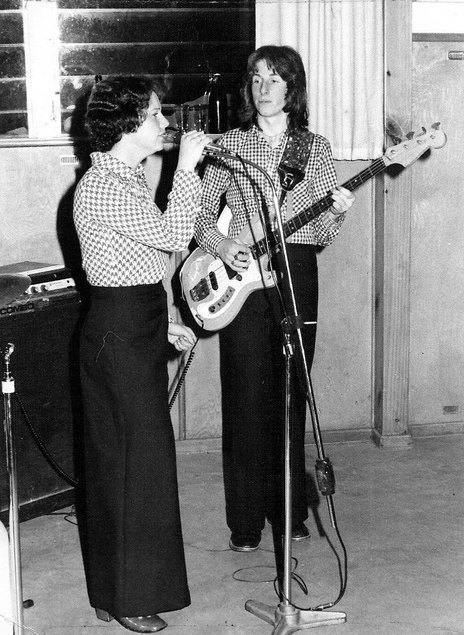
Ritchie Pickett on bass with Morrinsville band Doogal, 1973
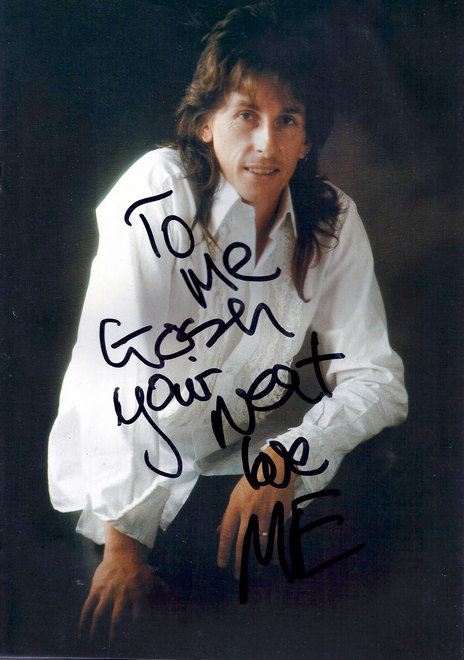
Ritchie Pickett’s autograph to himself in the Go New Zealand Tour program, 1985.
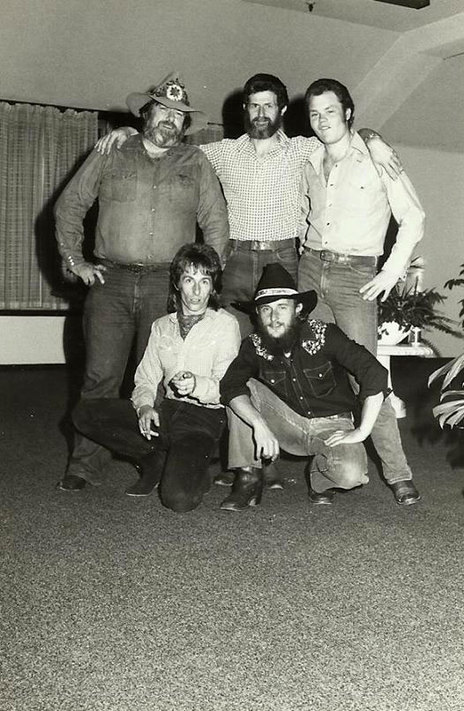
Double Anything, early 1980s. Clockwise from top left, Errol Shute, Bruce Morley, Jimmy Wallace, Dave Maybee, Ritchie Pickett.
Photo credit:
Charmaine Pickett collection
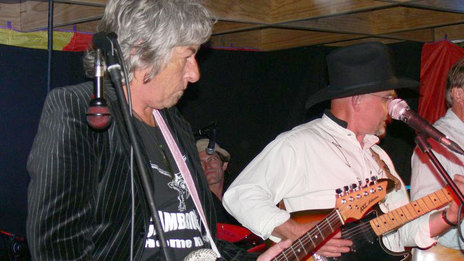
Ritchie Pickett (left) and Dave Maybee at the Mudsharks reunion, Raglan, 2009
Photo credit:
Sue Oliver collection
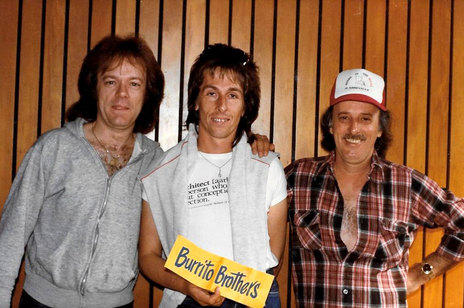
Ritchie Pickett with That’s Country guest artists The Burrito Brothers, John Beland (left) and Gib Guilbeau, early 1980s
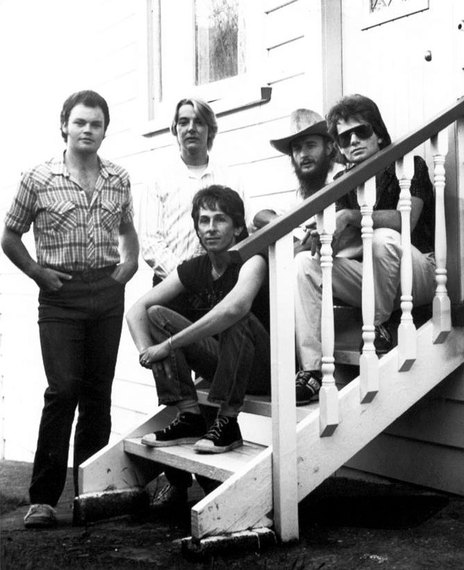
Ritchie Pickett & The Inlaws, 1984. Left to right, Jimmy Wallace, Kevin Coleman, Ritchie Pickett, Dave Maybee, Noel Lamberton.
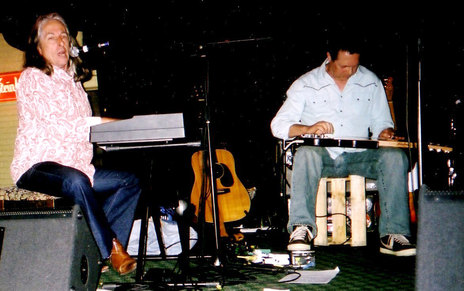
Ritchie Pickett (left) on stage at the King’s Arms, Auckland, with Bill Chambers, 2003
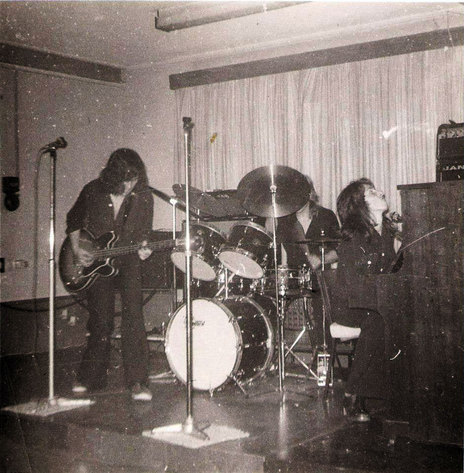
Ritchie Pickett at the piano with Graffiti, Te Rapa Tavern, Hamilton, 1974. Bill Wilson on bass.
Photo credit:
Lynnette Morris collection
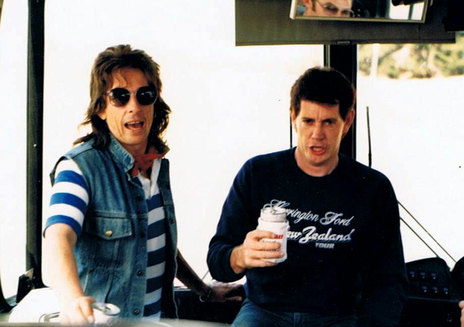
Ritchie Pickett (left) and Tom Sharplin on the Go New Zealand Tour bus, 1985
Photo credit:
Paddy Long collection
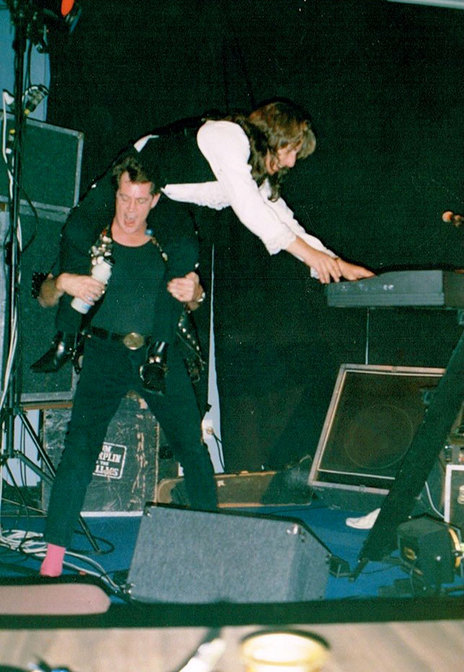
Ritchie Pickett on the shoulders of Tom Sharplin, early 1990s
Photo credit:
Tom Sharplin collection
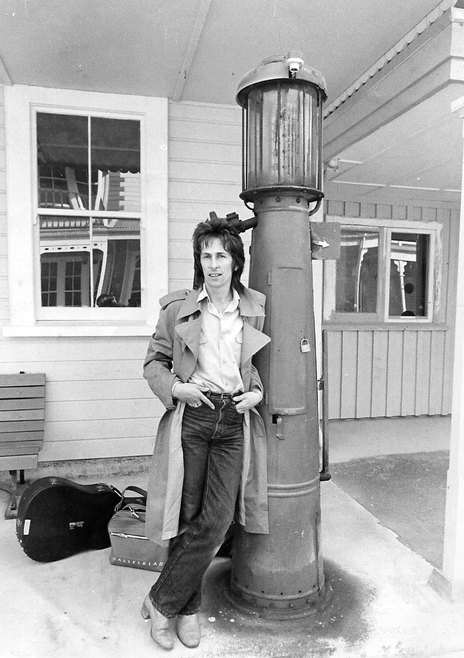
Ritchie Pickett in the early 1980s
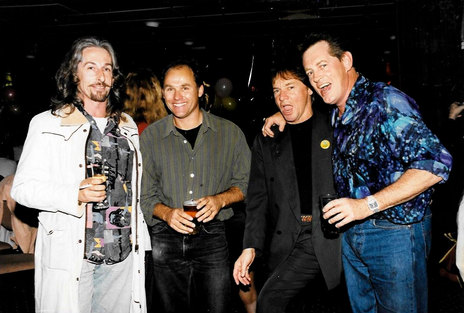
Ritchie Pickett, Rick Poole, Shane Hales and Tom Sharplin in the 1990s
Ritchie Pickett live at Java Jive - Honky Tonk Heroes
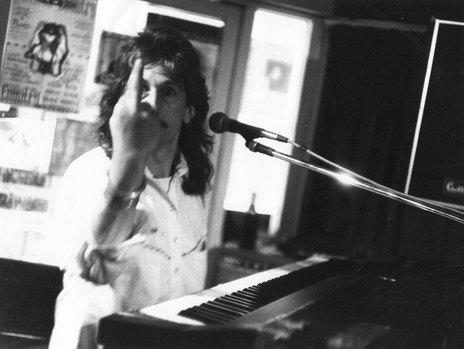
Ritchie Pickett in defiant mood at the Java Jive Café, Auckland, 1993
Photo credit:
Photo by Billy Lawry
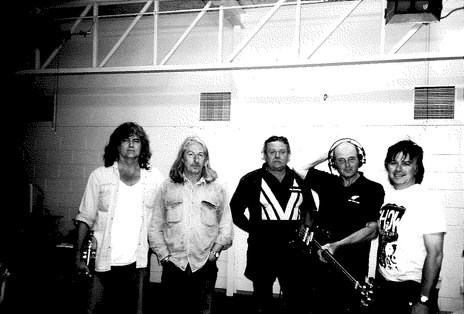
The Rattler. Left to right, Rik Bernards, Ritchie Pickett, Steve Mitchell, Simon Elton, Alf Pinfold.
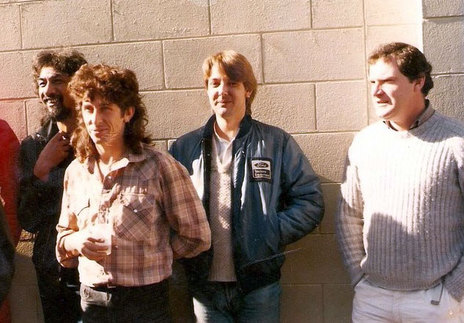
Sonny Day (left), Ritchie Pickett and Jones Boys Kevin Coleman and Chris Gunn, mid-1980s
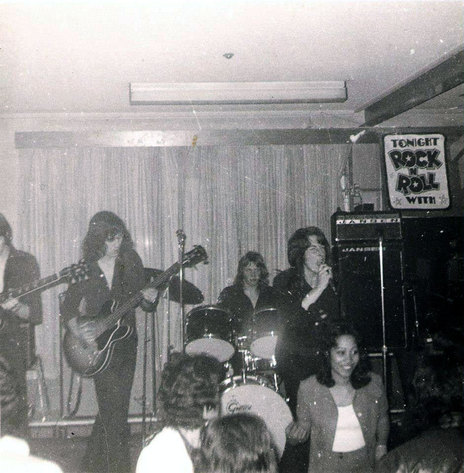
Graffiti at the Te Rapa Tavern, Hamilton, 1974. Left to right, Glenn White (obscured), Bill Wilson, Steve Osborne, Ritchie Pickett.
Photo credit:
Lynnette Morris collection
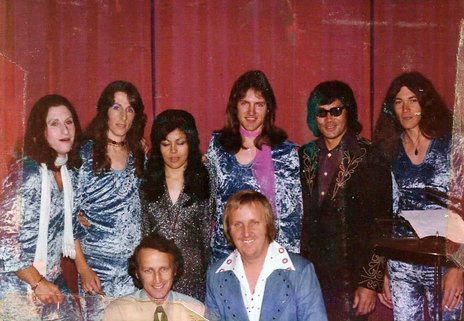
Graffiti Mk.2 with Eddie Low and as yet unidentified guests in the mid-1970s. Left to right, Jon Drinkwater, Ritchie Pickett, unidentified, Gary Williams, Eddie Low, John Parker. Front, unidentified, Brian Richards.
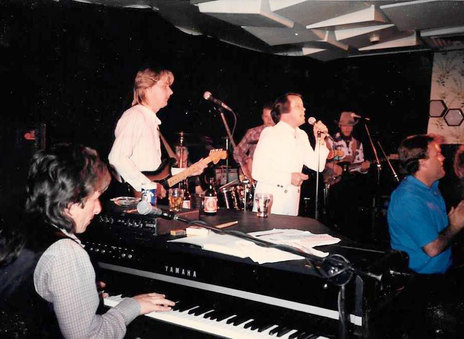
Ray Columbus on tour with Ritchie Pickett & The Inlaws, late 1984. Left to right, Ritchie Pickett, Kevin Coleman, Noel Lamberton, Jimmy Wallace, Ray Columbus, Dave Maybee.
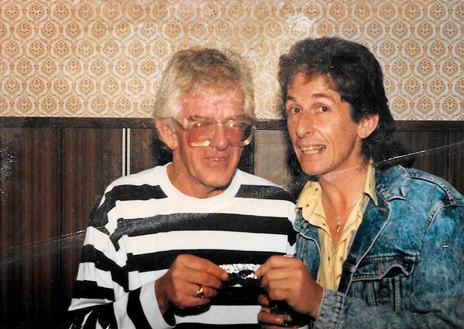
Ritchie Pickett with former Cabana publican Dick Kellett, the man credited with taking the Napier venue from MOR to rock
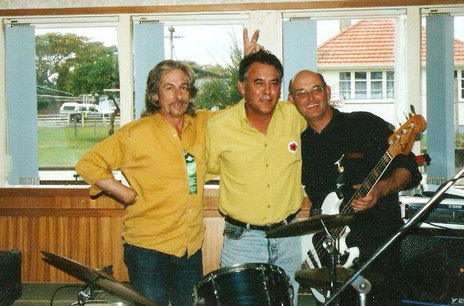
Ritchie Pickett, Larry Abbott and Simon Elton at the Morrinsville RSA, where Pickett would play free of charge every Anzac Day
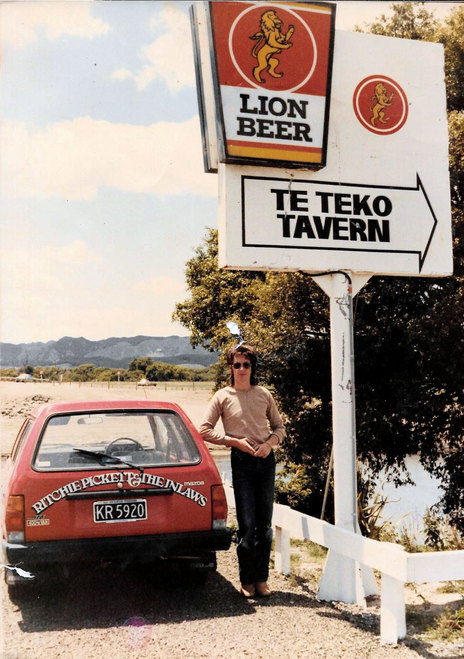
Ritchie Pickett in the early 1980s
Trivia:
When Ritchie Pickett doused his piano with lighter fluid and lit it at the Norfolk Island Country Music Festival in 2001, he didn’t anticipate the heat generated would burn a hole in the marquee and cost the organisers their hefty bond.
In the mid-1980s, Ritchie Pickett’s song ‘The Choice’ was put on hold by Cher’s management but it came to nothing.

